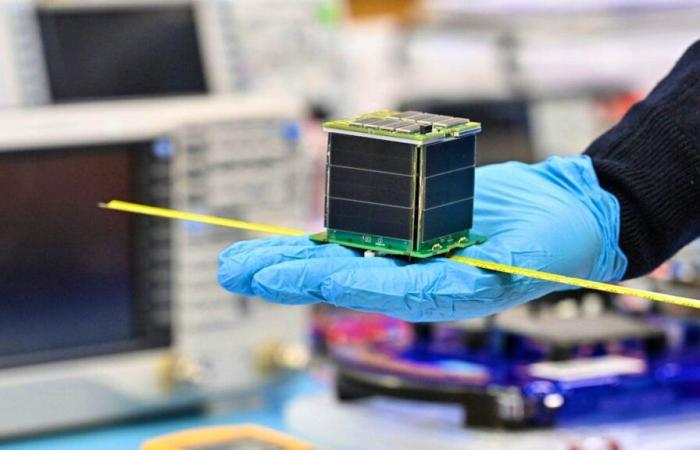Tuesday evening, around 8:15 p.m., the University of Luxembourg’s Poquito satellite took off for space aboard a Falcon 9 rocket from California. For the eight-person research team from the Interdisciplinary Center for Security, Reliability and Trust (SnT), “this is a very special moment,” as Professor Andreas Hein reports at The essentials. Because such a launch doesn’t happen every day. Team members followed the event together during a watch party via livestream.
“Everything went as we planned, because the rocket is very reliable,” we read a few minutes after the successful launch. After 100 km, the Luxembourg satellite was in space and the professor was relieved. “The idea that our satellite was inside is already very special,” he says.
Poquito’s mission in space: to test and demonstrate innovative technologies in real orbital conditions before their commercial use. “This is very important in the space industry, because space is a very hostile environment,” explains the 43-year-old German. In this case, it’s optical communication, where data is transmitted by light rather than radio waves, much like Morse code with a flashlight. Telemetry data, which provides information about Poquito’s health status, is transmitted in this way.
“The satellite components alone correspond to a somewhat expensive smartphone or laptop,” explains Andreas Hein. Added to this are, among other things, start-up and personnel costs. We can then talk about “a slightly more expensive car”. It is difficult to give a precise amount, however, because many different components must be taken into account.
Using readily available commercially available components would significantly reduce mission costs. “In this context, we often talk about the democratization of space: universities or even schools can develop their own satellites and send them into space,” explains Hein.
The collaboration with SpaceX is rather indirect, because Elon Musk’s company only serves as a transporter. “We are working with a British company, which is responsible for deploying the satellite into orbit,” explains Mr. Hein. Poquito is in a deployment device, built like a Russian doll. “Our satellite is housed in another satellite, developed by an Italian company,” explains the researcher.
Poquito is one of the smallest satellites in the world, hence its name, as Poquito means “a little” or “small” in Spanish. “We have a Mexican doctoral student on the team, and she thought the name suited our little satellite well,” says the professor. With its cubic edges only five centimeters long and a weight of less than 250 g, Poquito belongs to the category of PocketQubes and fits in the hand.
Despite its small size, the satellite is of great importance for Luxembourg: it is also about showing at the international level that a small country is capable of carrying out large projects. “We wanted to create something that sets us apart from other universities. The rapid development of satellites is an important element of this strategy,” explains Mr. Hein. Normally, such projects would take years, but Poquito was developed in about a year.
Poquito does not mark the end of the Grand Duchy’s space ambitions: “In the future, we want to focus on sustainability in space, developing technologies capable of avoiding or even eliminating space debris,” explains the professor. The training of young talents will also continue to play an important role.
Are you already following us on WhatsApp?
Subscribe to our channel, activate the little ???? and you will receive a news recap every day in early evening.






